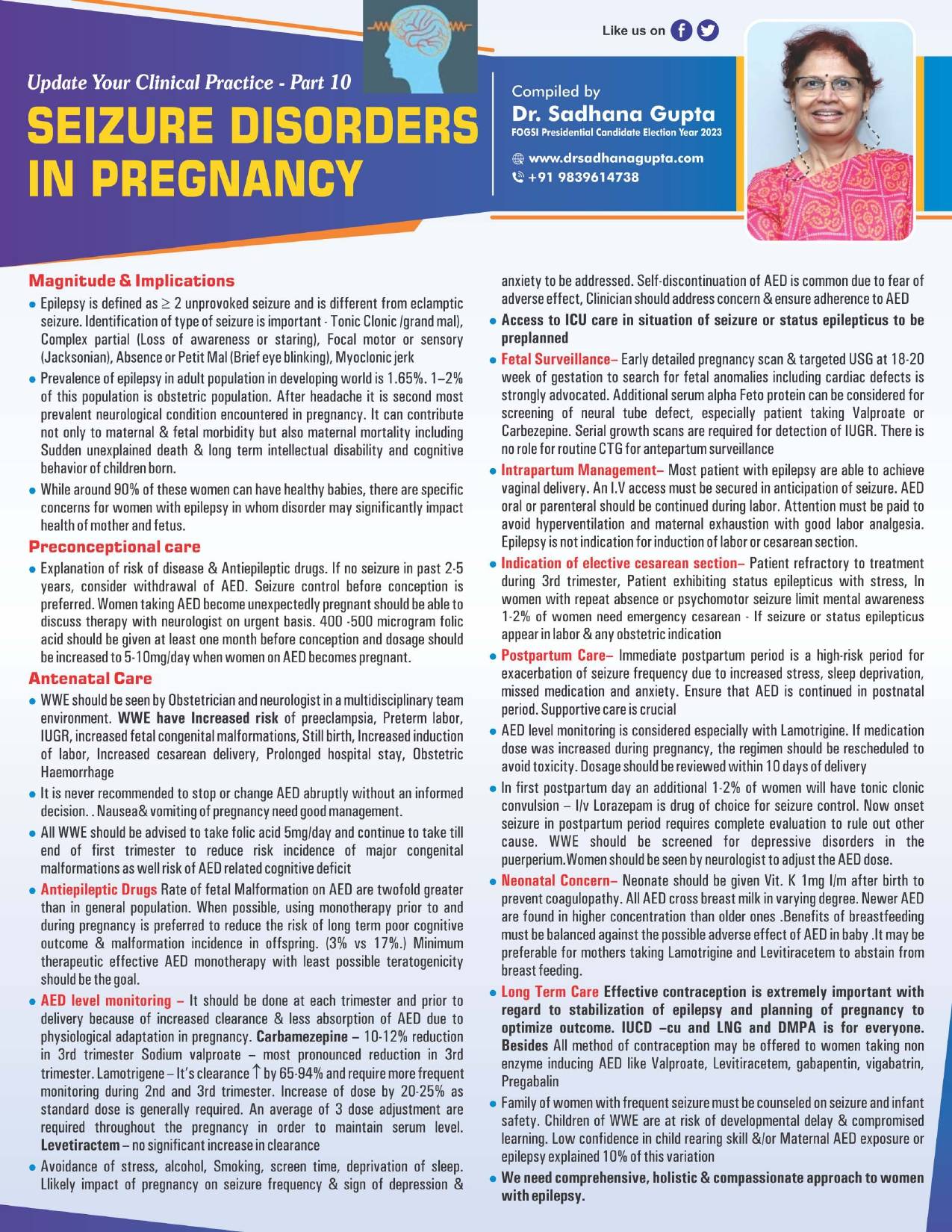Table of Contents
I. Introduction
Pregnancy is a time of excitement and anticipation, but for women with seizure disorders, it can also present unique challenges. The hormonal and physiological changes that occur during pregnancy can affect seizure frequency and medication management. In this blog post, we will explore the risks associated with seizure disorders in pregnancy and discuss important considerations for managing care.
Il. Understanding Seizure Disorders:
- Types of Seizure Disorders: Provide a brief overview of common seizure disorders such as epilepsy, focal seizures, and generalized seizures.
- Causes and Triggers: Discuss the various factors that can contribute to seizures, including genetic factors, brain injuries, and triggers such as stress, sleep deprivation, or flashing lights.
III. Effects of Pregnancy on Seizure Disorders:
- Hormonal Changes: Explain how hormonal fluctuations during pregnancy can affect seizure frequency and intensity.
- Medication Adjustments: Discuss the importance of working closely with healthcare professionals to adjust medication dosages and types to ensure the safety of both the mother and the developing fetus.
IV. Risks Associated with Seizure Disorders in Pregnancy:
- Maternal Risks: Highlight the potential risks for the mother, such as injury during seizures, changes in medication effectiveness, and the impact of seizures on overall pregnancy health.
- Fetal Risks: Explain the potential risks for the fetus, including increased risk of birth defects, preterm birth, and developmental issues. Emphasize the importance of prenatal care and regular monitoring.
V. Preconception Planning:
- Consultation with Healthcare Professionals: Encourage women with seizure disorders to consult with their neurologist and obstetrician before planning a pregnancy.
- Medication Review: Discuss the importance of medication review to evaluate the potential risks and benefits of antiseizure medications during pregnancy.
- Folic Acid Supplementation: Highlight the importance of taking folic acid supplements to reduce the risk of certain birth defects.
Managing Seizure Disorders during Pregnancy:
- Medication Management: Discuss the importance of closely monitoring medication levels and adjusting doses as necessary to maintain seizure control while minimizing potential risks.
- Lifestyle Considerations: Provide tips on managing stress, getting enough sleep, and maintaining a healthy lifestyle during pregnancy to help reduce seizure triggers.
- Seizure Action Plan: Encourage women to create a seizure action plan with their healthcare team, outlining steps to take in case of a seizure episode during pregnancy.
Pregnancy Monitoring and Support:
- Regular Prenatal Care: Emphasize the importance of attending regular prenatal check-ups and keeping healthcare providers informed about seizure activity.
- Fetal Monitoring: Discuss the potential need for additional monitoring, such as fetal ultrasounds or non-stress tests, to ensure the well-being of the developing baby.
- Support Networks: Encourage women to seek support from healthcare providers, support groups, and online communities to share experiences and gain emotional support.
VIII. Conclusion
Pregnancy can pose unique challenges for women with seizure disorders, but with careful planning and ongoing management, many women can have successful pregnancies while effectively managing their condition. By working closely with healthcare professionals, following a seizure action plan, and prioritizing self-care, women with seizure disorders can optimize their health and the well-being of their unborn child.

